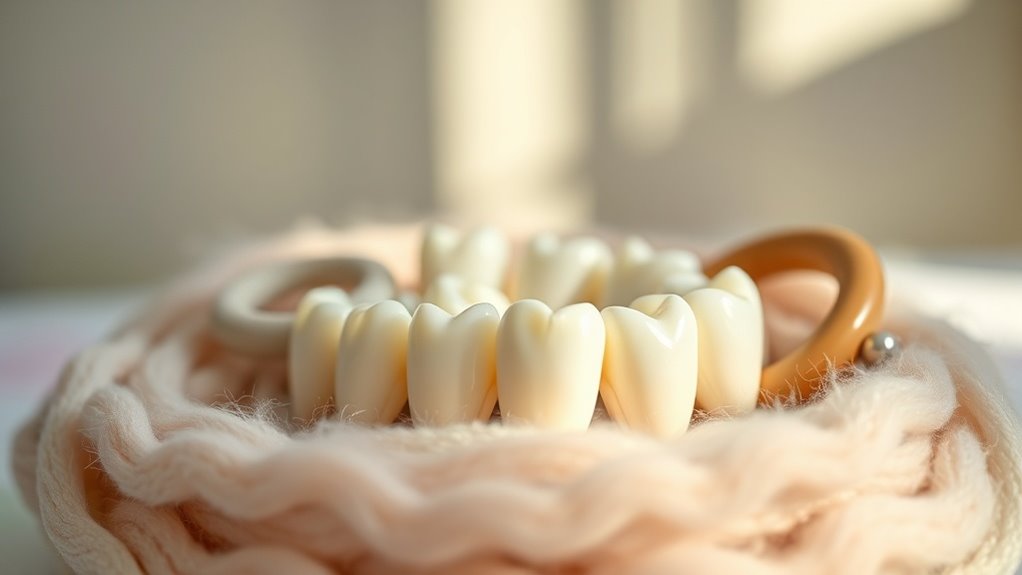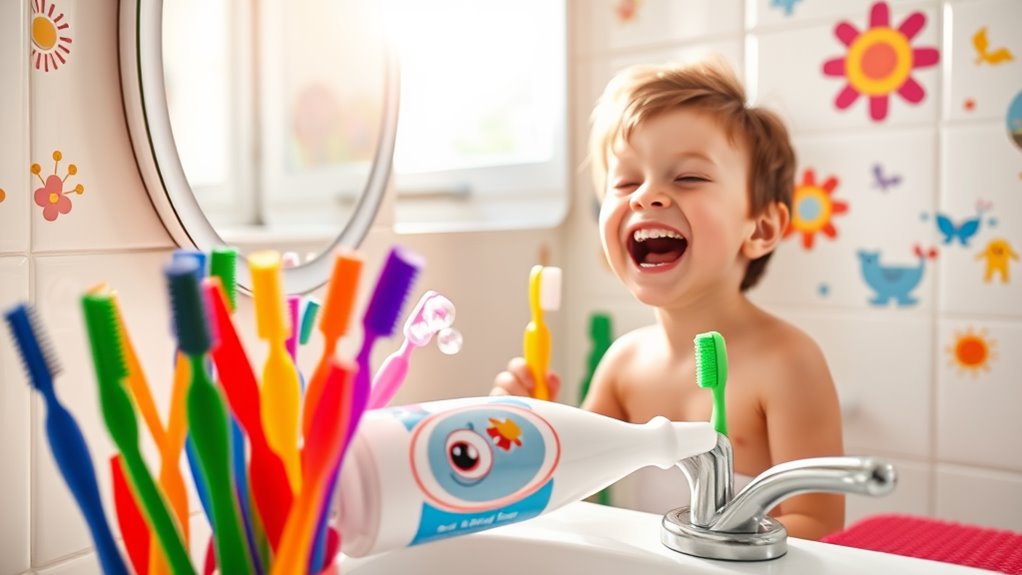Why Baby Teeth Are More Important Than You Think
When you think about your child’s health, baby teeth might not be the first thing that comes to mind. However, these small teeth are vital for more than just a smile. They set the stage for proper dental alignment, support speech development, and help with nutritional intake. Understanding their impact can change how you approach dental care for your child, but there’s much more to this story than you might realize.
The Role of Baby Teeth in Dental Health
Baby teeth, often overlooked, play a crucial role in your child’s dental health.
Their importance goes beyond just aesthetics; they reserve space for permanent teeth, aid in proper chewing, and support jaw development.
If baby teeth face decay or loss too early, it can lead to alignment issues later on.
Ensuring their health is vital for your child’s lifelong dental well-being. Healthy baby teeth guide the eruption of adult teeth, preventing misalignments and future orthodontic problems.
Impact on Speech Development
Maintaining healthy baby teeth is also important for your child’s speech development. Proper alignment and spacing of these teeth help your child form sounds accurately.
Without them, speech may become unclear or delayed, leading to frustration. Investing in your child’s dental health not only supports their ability to speak but also boosts their confidence as they communicate effectively with others.
Baby Teeth and Nutritional Needs
When your child’s baby teeth come in, they play a crucial role in supporting their nutritional needs.
Healthy baby teeth enable children to chew a variety of foods, which helps them access essential nutrients.
Remember, they’re key for:
- Crunchy fruits like apples
- Chewy vegetables like carrots
- Protein-rich snacks such as nuts
- Whole grains to fuel their energy
Each bite supports their growth and development. Additionally, crunchy fruits and vegetables not only aid in chewing but also play a vital role in maintaining oral health.
The Psychological Effects of Baby Teeth
Healthy baby teeth do more than just support nutritional needs; they also significantly influence a child’s emotional and psychological development.
When kids have healthy teeth, they feel confident in their smiles, which boosts self-esteem. This confidence promotes social interactions and encourages positive relationships.
Conversely, dental issues can lead to anxiety and social withdrawal, impacting overall mental well-being. Additionally, neglecting early dental visits can exacerbate existing dental problems, further affecting a child’s emotional health.
Healthy teeth build a strong foundation for a bright future.
Preventing Future Dental Issues
To prevent future dental issues, it’s crucial to establish good oral hygiene habits early on.
Start teaching your little ones how to care for their teeth. Consider:
- Brushing twice daily with fluoride toothpaste
- Flossing daily to remove food particles
- Reducing sugary snacks that can cause decay
- Scheduling regular dental check-ups for early detection
Incorporating engaging mobile apps can also motivate kids to develop healthy dental habits. These steps will set a strong foundation for a lifetime of healthy smiles.
Guidelines for Caring for Baby Teeth
Caring for baby teeth is essential, as these tiny tools set the stage for permanent teeth.
Begin by gently brushing twice daily with fluoride toothpaste, even before your child has all their teeth.
Encourage healthy eating habits, limit sugary snacks, and schedule regular dental checkups.
Teaching good oral hygiene early fosters lasting habits, helping your child maintain a healthy smile for years to come. Additionally, baby teeth play a crucial role in oral development and serve as placeholders for permanent teeth.




